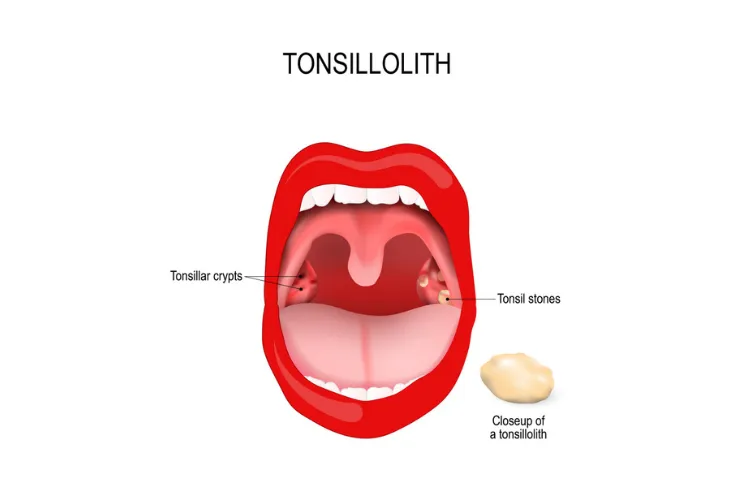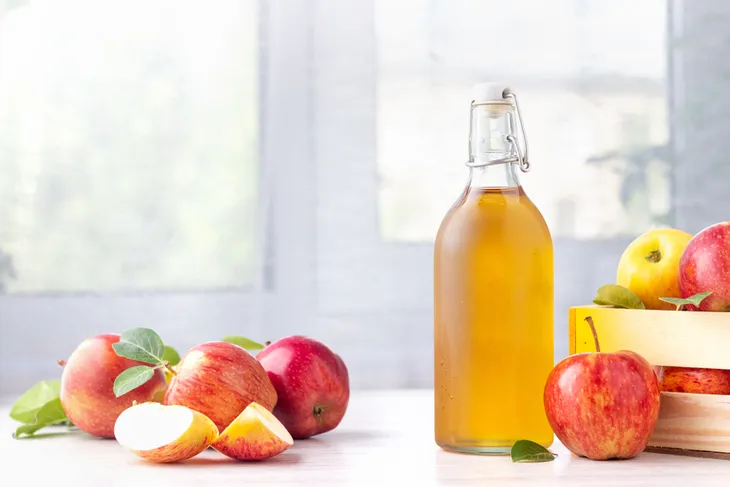Have you ever heard of something called tonsil stones? This medical problem is notorious for giving people bad breath and other unwanted symptoms. Anyone can develop tonsil stones. In fact, many people might not even be aware they have them in the first place.
The good news is that you can get rid of tonsil stones with some simple remedies, without having to visit the doctor’s office. Here’s a rundown of what tonsil stones are and what you can do to treat them at home.
What Are Tonsil Stones?
If there’s ever been a lump in your throat that won’t go away, then it might be due to tonsil stones. Cleveland Clinic says these are small lumps of hard material that form in the tonsils. While they are not typically painful or dangerous, tonsil stones can be a bit uncomfortable and give you bad breath.
Your tonsils are part of your immune system located at the back of your throat. They are basically two small tissues in the shape of ovals. Tonsils work to filter bacteria and viruses that enter the body through the mouth. When stones appear, it’s a hard material that causes small lumps in the tonsils.
Symptoms of Tonsil Stones
There are some telltale signs that you may experience with tonsil stones. The most common is bad breath that simply cannot be cured with a gargle of mouthwash.
According to WebMD, a study revealed that 75-percent of people with unusually high volatile sulfur compounds in their breath had tonsil stones.
Other Common Symptoms
In addition to bad breath, other symptoms of tonsil stones can include:
- Sore throat
- Cough
- White debris in the back of your throat
- Difficulty swallowing
- Ear pain
- Tonsil swelling
Coughing
While coughing can be a symptom of tonsil stones, it can also be a treatment that helps get rid of them. Healthline says that a forceful cough could potentially dislodge the stone and cure your case.
While this might not work in all cases, it’s worth a shot. It will ultimately depend on the size of the stone. Don’t continue coughing if it’s too painful or not helping.
Vinegar
You might already have this next treatment sitting in your pantry — a bottle of vinegar. This liquid contains acidic content that could help break down the tonsil stones.
According to Healthline, all you have to do is dilute the vinegar with water and gargle. And the vinegar doesn’t necessarily have to be white vinegar. You can try apple cider vinegar or another type that contains a similar acidic content.
Gargling Salt Water
If vinegar isn’t your thing, then a simple cup of salt water might do the trick. Gargling a saline solution can help dislodge the stones. You can make your own salt water or purchase saline solution bottles online. Medical News Today says to gargle for between 10 to 15-seconds.
A study published in the US National Library of Medicine says that gargling salt water in conjunction with routine oral care has proven health effects. So not only can it treat tonsil stones, but salt water can promote healthy gums and oral wound healing.
Cotton Swabs
A slightly more risky remedy involves using cotton swabs. Some people are able to sweep the tonsil stones from the back of the throat. Medical News Today says it can lead to potential injuries and should never be attempted on a child, so consider talking with your doctor first.
Start by slightly dampening the swab. Insert it toward the back of the throat making sure to avoid the middle of your throat to avoid the gag reflex. Gently sweep the stones away no more than a few times. Make sure to stop immediately if any bleeding occurs.
Essential Oils
You could treat tonsil stones simply by brushing your teeth with essential oils, specifically ones with anti-inflammatory or antibacterial properties. Healthline explains how you can dilute the essential oil in a carrier oil and add no more than two drops onto a toothbrush before brushing.
Some types of oils to consider using include myrrh, thieves oil, and lemongrass. Just make sure to follow the directions of whichever one you choose.
Eating Certain Foods
When you have tonsil stones, it could be helpful to consume certain foods in your diet. One of those foods is carrots. EMedicineHealth says that chewing raw carrots can naturally increase the production of saliva. This can be beneficial in reducing tonsil stones. Another thing to snack on is apples because the acidity could help fight bacteria in tonsil stones.
Something a little less savory is chewing a crushed clove of garlic. It can release allicin, which is responsible for its antimicrobial properties. This means that chewing crushed garlic can ward off bacteria responsible for tonsil stones.
Oral Irrigation
Next time you’re at the drugstore, look at the low-pressure water irrigators on sale. These low-pressure water devices can help loosen the tonsils and lead you to the road of recovery. For example, consider buying water flossers which you can use on a daily basis even after tonsil stones are gone.
For adults who want to treat the condition with oral irrigation, make sure you’re in front of a well-lit mirror. Aim the water flosser towards the back of your throat. Medical News Today says to be careful — the stone could fall down your throat and cause coughing.
Other Treatment Ideas
There are plenty of home remedies to try out if you’re dealing with tonsil stones. Here are some more ideas to consider:
- Use a tongue scraper.
- Gargle non-alcohol mouthwash.
- Maintain good oral hygiene.
- Eat foods with probiotics.
- Avoid carbonated drinks.
When to See a Doctor
Tonsil stones are inconvenient and sometimes uncomfortable, especially when you’re dealing with bad breath around other people. You can get rid of them in no time with some of these easy and effective home remedies. If you’re dealing with stubborn tonsil stones that don’t go away after several weeks, then see your doctor for more advice.
Make sure to see a doctor if you’re also experiencing symptoms such as coughing, pain, or difficulty swallowing. You could end up developing a tonsil infection that worsens with time. In that case, your doctor may try to dislodge the stones themself or prescribe antibiotics for an active infection.















